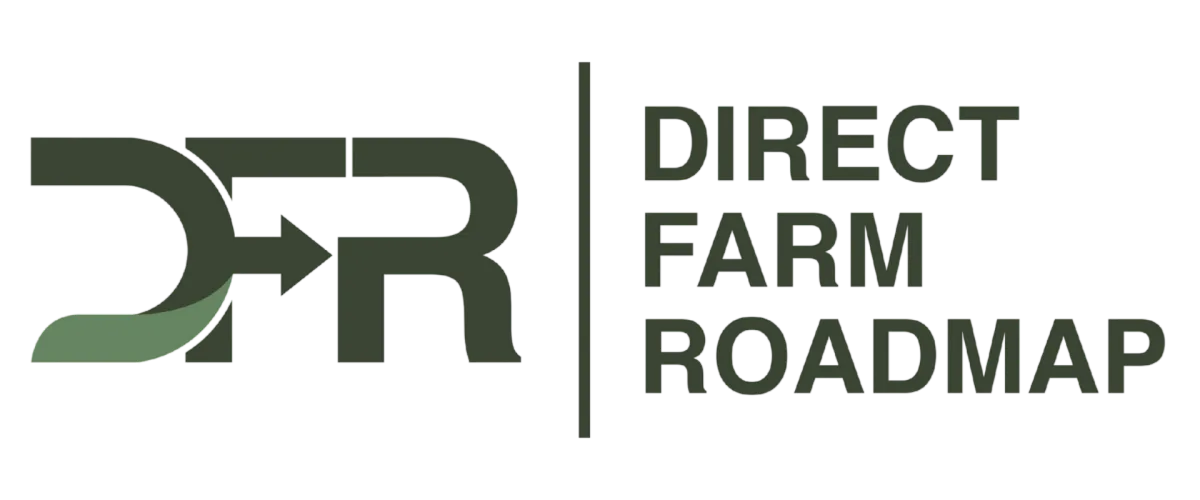Terms & Conditions
1. Introduction
Welcome to Direct Farm Marketing, a DBA of Bethel Marketing LLC ("Company", "we", "our", or "us"). By accessing or using our services, including marketing infrastructure building, digital assets, consulting, and coaching services, you ("Client", "you", or "your") agree to be bound by these Terms of Service ("Terms"). If you do not agree to these Terms, please do not use our services.
2. Services Provided
We provide a range of services, including but not limited to:
Building marketing infrastructureProviding digital assetsConsulting servicesCoaching and training
3. No Refunds Policy
Due to the digital nature of our assets and the information provided through our services, we do not offer refunds. All sales are final. By purchasing our services, you acknowledge and agree to this no-refund policy.
4. No Guarantee of Results
We do not guarantee any specific results from the use of our services. While we provide tools, strategies, and training to help you achieve your business goals, the actual results are dependent on your efforts, execution, and various other factors outside of our control. Testimonials provided are real but do not guarantee similar outcomes for all clients.
5. Client Responsibilities
As the business owner, you are responsible for:
Executing the strategies and training provided by us.Making all final business decisions.Running your business operations.We build systems and provide guidance, but you must implement and manage these systems effectively to achieve your desired results.
6. Changes to Links
All links provided by us are subject to change. We are not responsible for any inconvenience caused by such changes.
7. Intellectual Property
All digital assets, training materials, and other content provided by us are the intellectual property of Direct Farm Marketing, a DBA of Bethel Marketing LLC. You are granted a limited, non-exclusive, non-transferable license to use these materials for your personal business purposes only. You may not reproduce, distribute, or otherwise exploit these materials for any commercial purposes without our prior written consent.
8. Limitation of Liability
To the fullest extent permitted by law, Direct Farm Marketing, a DBA of Bethel Marketing LLC, shall not be liable for any indirect, incidental, special, consequential, or punitive damages, or any loss of profits or revenues, whether incurred directly or indirectly, or any loss of data, use, goodwill, or other intangible losses, resulting from:
Your use or inability to use our services.
Any unauthorized access to or use of our servers and/or any personal information stored therein.Any interruption or cessation of transmission to or from our services.
Any bugs, viruses, trojan horses, or the like that may be transmitted to or through our services by any third party.
Any errors or omissions in any content or for any loss or damage incurred as a result of the use of any content posted, emailed, transmitted, or otherwise made available through the services.
9. Indemnification
You agree to indemnify, defend, and hold harmless Direct Farm Marketing, a DBA of Bethel Marketing LLC, and its affiliates, directors, officers, employees, and agents, from and against any and all claims, damages, obligations, losses, liabilities, costs, or debt, and expenses (including but not limited to attorney's fees) arising from: Your use of and access to our services.Your violation of any term of these Terms. Your violation of any third-party right, including without limitation any copyright, property, or privacy right.Any claim that your use of our services caused damage to a third party.
10. Governing Law
These Terms shall be governed and construed in accordance with the laws of the State of [Your State], without regard to its conflict of law principles.
11. Changes to Terms
We reserve the right, at our sole discretion, to modify or replace these Terms at any time. If a revision is material, we will provide at least 30 days' notice prior to any new terms taking effect. What constitutes a material change will be determined at our sole discretion.
12. Contact Us
If you have any questions about these Terms, please contact us at: Direct Farm Marketing, DBA Bethel Marketing LLC, 5767 Bethel rd. Clermont, Ga.
Email: [email protected]
Phone: 770-758-8751
What we do.
We connect 100,000+ qualified prospects looking for financial advice, lending, protection, debt help and claims to advisors and brokers every year.

It's all about the numbers.
As a performance marketing agency driven by data, our comprehensive approach ensures promoting successful results, consistently aiming for a positive return on your advertising expenditure.
500+
Project Delivered
$60M+
In Partner Revenue
10,346
Positive Reviews
What We Do
Your proven customer acquisition system that increases conversion rates at every step of the customer journey so you can enjoy record breaking sales.
Effective Lead Generation
Strategically focused on high-intent leads generation tactics from Google, Bing, & YouTube.
Database Reactivation
Turn your old data into fresh appointments and sales, utilising our sales android that never rests.
Appointment Setting
Transform your contact rate and campaign profitability with our appointment setting sales android.
Blog
Your proven customer acquisition system that increases conversion rates at every step of the customer journey so you can enjoy record breaking sales.

Beyond the Commodity Trap: How Agricultural Producers Can Build Equity and Security Through Direct-to-Consumer Marketing
Beyond the Commodity Trap: How Agricultural Producers Can Build Equity and Security Through Direct-to-Consumer Marketing
Overview
For most agricultural producers, the conventional marketing system represents a precarious existence—one where your livelihood depends on commodity prices you can't control, middlemen who capture the majority of consumer dollars, and market forces that can erase your profit margins overnight. This guide reveals how forward-thinking farmers and ranchers are breaking free from this cycle by building scalable direct-to-consumer (DTC) operations that not only increase profits today but create lasting equity in customer relationships. Discover how producers across the country are insulating themselves from market volatility, capturing up to 40% more revenue per unit, and building valuable customer databases they fully own and control—all while serving their communities with high-quality, sustainably raised products.
The Broken Economics of Conventional Agricultural Sales
The traditional agricultural distribution system systematically extracts value from producers while concentrating profits among processors, distributors, and retailers. Consider these sobering economics:
For every consumer dollar spent on beef, conventional ranchers typically receive just 11-14 cents
Dairy farmers often receive less than 30% of the retail price for their milk
Fresh produce farmers average 17-20% of the grocery store price for their crops
Meanwhile, these same producers bear the full risk of production challenges, weather events, and market volatility—often operating with razor-thin or negative margins despite creating the foundational value in the food system.
This systemic imbalance makes agricultural operations perpetually vulnerable to forces beyond their control:
A 10% commodity price swing can be the difference between profit and loss for an entire season
Processing bottlenecks can force producers to accept whatever terms are available
Retail consolidation continuously reduces producer leverage in negotiations
Yet despite these challenges, many producers remain tethered to this system out of habit, perceived lack of alternatives, or uncertainty about how to transition to a different model.
The Direct-to-Consumer Opportunity
The most successful agricultural entrepreneurs have discovered that direct-to-consumer marketing isn't just an alternative revenue stream—it's a fundamentally different business model that can transform their economic security while building lasting enterprise value.
Reclaiming Your Profit Margin
By eliminating middlemen, direct marketing allows producers to capture a significantly larger share of the consumer dollar:
Direct-marketing meat producers typically retain 70-80% of the final price versus 11-14% in conventional channels
CSA and direct-market vegetable operations capture 60-70% of retail value versus less than 20% through wholesale
Value-added dairy producers can increase their revenue per gallon by 200-300% through direct sales
These aren't minor improvements—they represent transformational shifts in business economics that can make previously marginal operations highly profitable.
Insulation from Commodity Market Swings
Perhaps even more valuable than increased margins is the stability that comes from decoupling your operation from volatile commodity markets. Direct-to-consumer producers:
Set their own prices based on production costs plus reasonable profit margins
Adjust pricing gradually and strategically rather than absorbing rapid market swings
Create value-based relationships that transcend pure price competition
Build resilience through diversified products and revenue streams
A beef producer who has built a strong direct marketing operation doesn't have to worry when commodity prices drop 20% in a month. Their prices—and more importantly, their profit margins—remain stable regardless of auction market fluctuations.
Building Equity in a Customer Database You Control
Perhaps the most overlooked asset in direct-to-consumer agriculture is the equity value created in your customer database. Unlike land, equipment, or livestock, this asset:
Grows in value over time as you deepen relationships
Provides compounding returns through repeat purchases and referrals
Creates predictable revenue streams through subscription models
Represents transferrable business value if you eventually sell your operation
A 1,000-person customer list with proven purchasing behavior and a 60% retention rate can be worth $250,000-$500,000 in enterprise value—equity that simply doesn't exist in commodity production models.
When you sell through conventional channels, you have no idea who ultimately purchases your products. By contrast, direct marketing builds a proprietary customer database that you fully own and control, creating a moat around your business that becomes increasingly valuable over time.
Real-World Success Models
The transition to direct-to-consumer marketing isn't theoretical—it's being successfully implemented by producers across the country. These case examples demonstrate the potential:
From Commodity Cattle to Premium Direct Beef
A fifth-generation cattle operation in the Midwest was struggling with volatile market prices and shrinking margins. After implementing a direct marketing program focused on:
Premium pricing (35% above conventional retail)
Simplified product bundles (3 core packages rather than 30+ individual cuts)
Strategic email marketing to build customer relationships
Subscription model for predictable cash flow
Within 18 months, they had:
Increased their per-animal revenue by 87%
Reduced their market risk exposure by 60%
Built a 1,500-person customer list with 65% reorder rate
Created a waitlist for their premium products
Most importantly, they now have predictable revenue regardless of commodity market conditions, creating financial stability for the first time in three generations.
From Wholesale Produce to Consumer-Direct CSA
A vegetable operation that had been selling primarily to distributors and retailers was consistently squeezed on price and struggled with rejected deliveries. Their transition to a direct model included:
Community Supported Agriculture (CSA) subscriptions
Online ordering with convenient delivery options
Strategic bundling of products in curated boxes
Value-added products to extend their season
After 24 months, they had:
Increased their per-acre revenue by 112%
Reduced crop waste by over 30% (by selling "imperfect" produce directly)
Built a recurring customer base of 400+ households
Created year-round income despite a 7-month growing season
Their business is now largely insulated from wholesale price pressures, and they've created significant equity value in their customer relationships.
The Five Pillars of Successful Direct-to-Consumer Operations
Our analysis of hundreds of successful direct-to-consumer agricultural businesses reveals five common elements that drive their success:
1. Strategic Product Simplification
Rather than offering endless options that create decision paralysis, successful operations focus on:
Curated bundles that simplify customer choices (3-5 core offerings)
Tiered pricing that encourages higher average purchases
Seasonal specialties that create urgency and interest
Minimal à la carte options (typically less than 10% of SKUs)
This approach not only increases conversion rates by 300-500% compared to extensive product listings, but also dramatically simplifies inventory management and operations.
2. Frictionless Digital Purchasing
The highest-performing operations make buying absurdly easy through:
Mobile-optimized websites with clear value propositions
Streamlined checkout processes (three clicks or less)
Multiple payment options for customer convenience
Clear product pages that contain all decision information
Each removed friction point increases conversion rates by approximately 10%, with the cumulative effect often doubling or tripling sales from the same website traffic.
3. Convenient Fulfillment Systems
Rather than expecting customers to accommodate your schedule, successful operations implement:
Zone-based delivery systems with strategic routing
Convenient pickup locations in customer-dense areas
Clear delivery windows with advance notifications
Temperature-controlled packaging appropriate for the product
These systems simultaneously improve customer satisfaction while controlling costs, maintaining 12-15% fulfillment expenses versus industry averages of 25-35%.
4. Relationship-Based Marketing
Instead of transactional promotions, direct marketing leaders focus on:
Educational content that builds trust and expertise
Transparent communication about farming practices
Community-building among customers
Consistent email communication (typically weekly)
This approach generates 31-40% of total revenue through email marketing alone—a channel with near-zero marginal cost compared to paid advertising.
5. Recurring Revenue Models
The most financially stable operations implement:
Subscription programs with predictable fulfillment schedules
Loyalty systems that reward consistent purchasing
Pre-sold seasonal commitments (CSA model)
Volume incentives that increase customer lifetime value
These structures create predictable cash flow, reduce marketing costs for repeat sales, and build significant barriers to competition.
Getting Started: Your 90-Day Implementation Plan
Transitioning to direct-to-consumer marketing doesn't require replacing your entire business model overnight. The most successful producers implement a phased approach:
Phase 1: Foundation Building (Days 1-30)
Identify your core products with highest margin potential
Develop initial bundle/subscription offerings
Create basic online presence with purchasing capability
Define initial fulfillment zones and systems
Phase 2: Customer Acquisition (Days 31-60)
Launch targeted local marketing to ideal customers
Implement lead capture systems (valuable content in exchange for email)
Develop educational content that builds credibility
Create referral programs to leverage existing relationships
Phase 3: System Optimization (Days 61-90)
Analyze initial sales data to refine offerings
Optimize fulfillment routes for efficiency
Implement automated marketing sequences
Develop retention programs for existing customers
This methodical approach allows you to build your direct-to-consumer channel alongside existing operations, gradually shifting resources as you prove the model's success.
The Long-Term Value Proposition
Beyond immediate profit improvements, direct-to-consumer marketing creates three forms of lasting value:
Financial Security Through Diversification
By building multiple revenue streams that don't all respond to the same market forces, you create resilience against:
Commodity price volatility
Processing bottlenecks
Economic downturns
Industry consolidation
Community Impact Through Relationship
Direct marketing creates opportunities for meaningful connection with:
Local consumers who value your story and practices
Regional food systems that build economic resilience
Food-insecure communities through innovative access programs
Next generation producers seeking viable models
Legacy Value Through Business Equity
Unlike commodity production, which primarily builds value in land and equipment, direct marketing creates transferable business assets:
Customer database with proven purchase patterns
Marketing systems that consistently generate sales
Brand recognition and reputation
Diversified revenue streams with predictable returns
These assets dramatically increase the enterprise value of your operation, whether for family succession or eventual sale.
Conclusion
The conventional agricultural system continues to extract value from producers while concentrating profits elsewhere in the supply chain. But a growing movement of innovative farmers and ranchers is charting a different course—one that puts producers back in control of their economic destiny.
By building direct relationships with consumers, these agricultural entrepreneurs are not only capturing more value from their production but creating insulation from market volatility and building lasting equity in their operations. Their success isn't based on size, location, or commodity—it's based on strategic approaches to marketing, fulfillment, and customer relationships.
The opportunity to break free from the commodity trap has never been more accessible. With today's technology, consumer interest in food sourcing, and proven implementation models, producers of all scales can build viable direct-to-consumer channels that transform their economic security.
Our comprehensive program provides both the strategic guidance and tactical implementation support to help agricultural producers successfully navigate this transition. From initial concept through full-scale operation, we offer:
Expert consulting on product strategy and pricing models
Technical implementation of e-commerce and fulfillment systems
Done-for-you marketing campaigns and content creation
Ongoing coaching to optimize your direct-to-consumer channel
For producers looking for more hands-on support, our turnkey solutions provide complete implementation assistance to accelerate your path to success.
Ready to transform your agricultural business model and build lasting equity through direct-to-consumer marketing? Contact us today for a free consultation to explore how our program can help you capture the full value of your production.
© 2025 Direct Farm Marketing All rights reserved.


